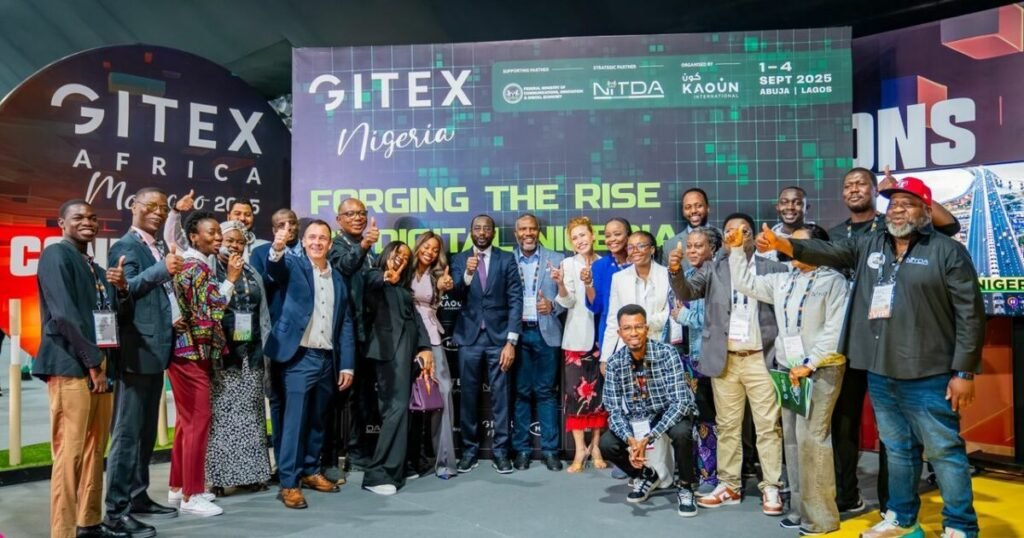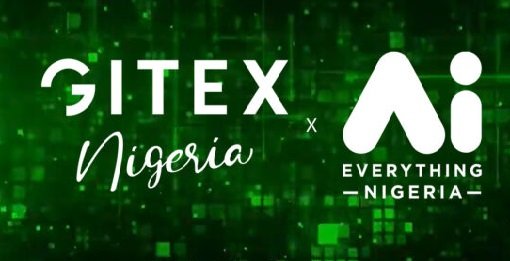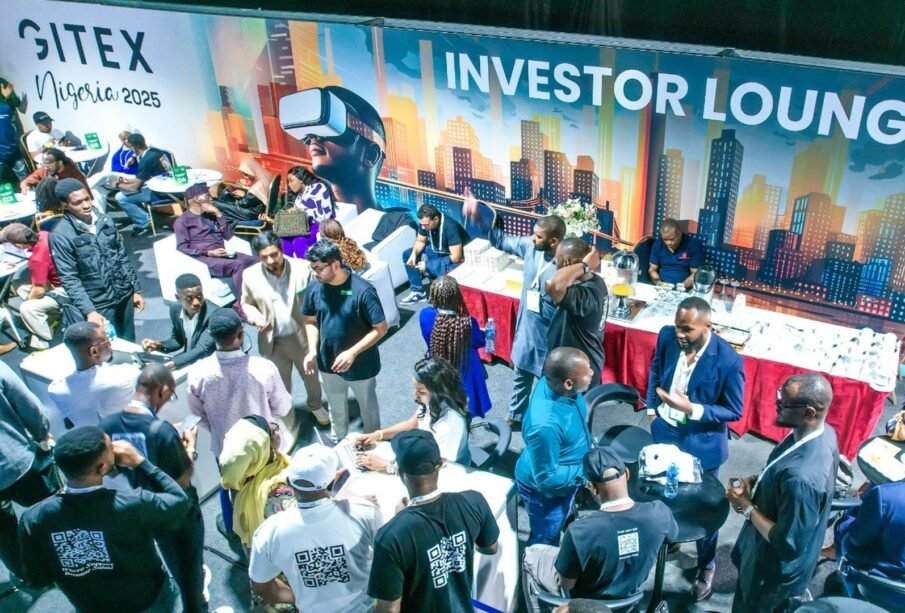In early September 2025, Nigeria made history with the successful launch of GITEX Nigeria, a landmark event that not only brought the global tech community to our shores but also underscored Nigeria’s rising importance in the digital era across West Africa. Held from 1st to 4th September in Abuja and Lagos, this premier gathering attracted international exhibitors, investors, government officials, and tech visionaries, all with eyes fixed on Nigeria’s digital future.
Under the patronage of His Excellency Bola Ahmed Tinubu, GCFR, President of the Federal Republic of Nigeria, the event was backed by major national institutions — the Federal Ministry of Communications, Innovation and Digital Economy, together with the National Information Technology Development Agency (NITDA) — in collaboration with the Lagos State Government. Organised by KAOUN International, who have global experience producing GITEX events, the conference and expo signalled Nigeria’s intention to be a major player in global tech dialogues. The debut of GITEX Nigeria immediately put the spotlight on what our tech ecosystem can achieve — not just in terms of scale, but in terms of potential, innovation, and cross-border collaboration.
Table of Contents

High-Level Support: Government, Startups and Global Players Align
From Day One, the involvement of government at the highest levels sent clear signals. With President Tinubu lending patronage, and with the Ministry and NITDA heavily involved, the event enjoyed legitimacy and momentum. Lagos State also played a pivotal supportive role, showing that federal and state governments can and must work together to nurture digital ecosystems.
Olatunbosun Alake, Commissioner for Innovation, Science & Technology for Lagos State, noted that even within its short span, GITEX Nigeria had already begun to shift paradigms in our tech space: startups were not only showcasing ideas but engaging global investors; international organisations were discovering in Nigeria a fertile ground for digital growth; and many began to see that the long-term digitalisation of our country would depend heavily on sustained international collaboration.
On the global tech front, companies like Cisco (Nigeria & Ghana), AWS, IBM, Meta, Microsoft, NVIDIA, and others confirmed the quality of the engagement at GITEX Nigeria. As one executive from Cisco put it, the crowd at their stand wasn’t just large — it was relevant. Government figures, industry decision-makers, and potential partners all came through, and some leads have already begun converting into concrete opportunities. The event created platforms for talking, negotiating, and in some cases, closing deals — all of which is a strong signal to the world that Nigeria is open for digital business.

Platforms, Partnerships, and Cross-Border Collaboration
GITEX Nigeria was structured around dual platforms: the Tech Expo & Future Economy Conference in Lagos at the Eko Hotel Convention Centre, and the Startup Festival at Landmark Centre. These two arms of the event together delivered a powerful blend of policy-oriented discussion, innovation showcase, investment matching, and networking.
For startups, this meant more than just exhibiting: it meant meeting potential investors and formal partners, government representatives, and peers from across Africa and beyond. The investor programme — among the most internationally diverse that Nigeria has hosted — brought together startups, corporations, global investors, and government stakeholders. Cross-border collaboration became more than a talking point; it was an actionable outcome, with meetings scheduled, pitches made, and follow-ups underway.
International tech firms and development organisations added further gravitas. Contributions from the International Finance Corporation (IFC), United Nations Development Programme (UNDP), Kaspersky, Space42, and others added depth to discussions about regulation, digital infrastructure, cybersecurity, artificial intelligence, and future economy sectors. These weren’t side-attritions: they were core to what GITEX sought to achieve — a bridge between policy, private enterprise, and international standards.
What This Means for Nigeria’s Digital Future
The scale and quality of GITEX Nigeria’s launch suggest several things for Nigeria going forward:
- Credible Global Engagement – When international brands and organisations show up, it affirms that Nigeria is being taken seriously as a digital economy. The presence of global players like Microsoft, Meta, AWS, and NVIDIA implies that there is interest, respect, and expectation. This opens doors for knowledge transfers, funding, partnerships, and new business models.
- Startups Get a Lift – For early- and mid-stage tech companies in Nigeria, linking up with investors, government agencies, and corporates via GITEX creates opportunities not just for funds but also for mentorship, exposure, and scaling beyond local markets. The ability to pitch, to be seen, to connect across borders matters, especially for startups eyeing regional expansion.
- Policy and Regulation as Enablers – The involvement of national agencies (like NITDA) and state governments (such as Lagos) shows that the regulatory and infrastructural environment is being taken seriously. For digital economies to grow, infrastructure (power, broadband, data spaces), regulation (cybersecurity, data protection), and incentives (tax breaks, grants, ease of doing business) must be aligned. GITEX’s government backing suggests these issues are on the agenda.
- Technology Innovation Trends highlighted – From AI to cyber security, from policy in future economy sectors to emerging tech, the discourse at GITEX Nigeria identified major fronts where Nigeria needs to invest. These include deepening our digital infrastructure, promoting local content and innovation, ensuring skills development, and protecting citizens’ data and security in a rapidly digitalising environment.
- Regional Hub Potential – Nigeria is already one of the biggest tech markets in Africa; GITEX Nigeria positions it not only as a destination but as a hub for West Africa. Cross-border flows of investment, ideas, and human capital are easier when there is a central conference that attracts global visibility. If nurtured, this event could help Nigeria consolidate its leadership in the region of West Africa’s tech industry.
- Sustainability and Long-Term Vision – For GITEX Nigeria to have lasting impact, the momentum must be sustained year-on-year. The commitment shown must translate into follow-up actions: investment in tech infrastructure; policies that support startups long-term; partnerships between local and global firms; continuous platforms for scaling innovation; and mechanisms for measuring impact (jobs created, revenue generated, ecosystems improved).

Conclusion
As GITEX Nigeria closes its inaugural chapter, the message is loud and clear: the world is watching, global tech is engaging, and Nigeria’s digital future is no longer just a promise — it’s a movement in motion.
If you are a startup founder, policymaker, investor, or tech enthusiast, the path ahead is both challenging and thrilling. Nigeria has opened a new door. Now it needs to walk through — with consistency, vision, and collaboration.
Join Our Social Media Channels:
WhatsApp: NaijaEyes
Facebook: NaijaEyes
Twitter: NaijaEyes
Instagram: NaijaEyes
TikTok: NaijaEyes





